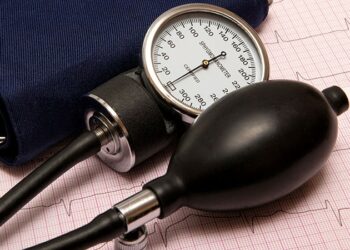BARCELONA, Spain — Trastuzumab deruxtecan (TDXd) shows promise as a treatment for HER2-low and HER2-ultralow hormone receptor (HR)–positive metastatic breast cancer, according to data from the DESTINY-Breast06 trial presented here at the European Society for Medical Oncology (ESMO) Annual Meeting 2024.
This multicenter, randomized, phase 3 trial compared TDXd, an antibody-drug conjugate (ADC), with chemotherapy in 866 patients with HER2-low or HER2-ultralow HR–positive metastatic breast cancer. The primary endpoint was progression-free survival (PFS). Results showed a median PFS of 13.2 months for HER2-low patients in the TDXd group, compared with 8.1 months in the chemotherapy group.
The findings were recently published in The New England Journal of Medicine and suggest that TDXd is a treatment option for patients with HER2-low metastatic breast cancer who have received one or more lines of endocrine-based therapy but no chemotherapy.
“We found that TDXd was equally effective in both HER2-low and HER2-ultralow populations,” said Xichun Hu, MD, professor of medical oncology at Fudan University Shanghai Cancer Center, Shanghai, China, and one of the main coordinators of the clinical trial. He was speaking with Medscape Medical News. “This finding is crucial, as it suggests that patients with very low HER2 expression can also benefit from this drug.”
More than 50% of patients in the TDXd group experienced adverse events, a rate similar to that seen in the chemotherapy group. However, the nature of the side effects differed. Patients in the chemotherapy arm most commonly experienced neutropenia, hand-foot syndrome, and fatigue, while those in the TDXd group reported gastrointestinal side effects, such as constipation, loss of appetite, nausea, and vomiting.
“These side effects did not significantly impact patients’ quality of life,” Hu said, “but it is important to implement antiemetic prophylaxis in clinical practice, and we are planning further studies on anti-nausea treatments to mitigate these effects.”
HER2 is a tyrosine kinase receptor that acts as a docking site for the antibody portion of ADCs. HER2–negative breast cancers tend to grow and spread more slowly than HER2–positive cancers but are less likely to respond to HER2-targeted therapies.
Christos Sotiriou, MD, PhD, of the Jules Bordet Institute in Brussels, Belgium, emphasized the importance of accurately characterizing HER2 status. “The antibody must bind to the target to release the drug,” he said. “The question is whether we are measuring the target correctly. We need to minimize false negatives to ensure patients eligible for ADC treatment are correctly identified.”
According to Kevin Kalinsky, MD, of the Winship Cancer Institute of Emory University, Atlanta, the trial was “highly anticipated,” and the results raise important questions about how HER2-low breast cancer is treated.
“Interestingly, the 20% of patients with HER2-ultralow disease had the same level of benefit,” Kalinsky said. “Should we consider using TDXd earlier in patients with HER2-ultralow disease once they become endocrine resistant?”
A Younger Population
Breast cancer is the most common cancer among Chinese women, with 1.6 million people newly diagnosed and 1.2 million dying of the disease every year. These figures account for approximately 12% of new breast cancer cases and 9.6% of breast cancer deaths worldwide.
Breast cancer incidence and mortality rates in China increased by 3.3% and 1% per year, respectively, between 2000 and 2015. They are projected to rise by more than 11% by 2030 in urban and rural areas, making effective treatment strategies urgently needed.
Several factors contribute to the rising numbers, including socioeconomic changes and China’s one-child reproductive policy (1979-2015). Additionally, Chinese patients with breast cancer tend to be younger than those in other countries.
“Breast cancer in China differs from that in Caucasian populations, as about 55%-60% of Chinese patients are premenopausal,” Hu told Medscape Medical News. “This presents unique challenges, as these women are often of working age and managing family responsibilities. We need more effective treatments to help them return to work and contribute to society.”
Hu said that future research will explore TDXd in patients with triple-negative breast cancer. “We are also investigating its use in other solid tumors, such as lung and gastric cancers that express some level of HER2, and there are several ongoing clinical trials examining these applications.”
However, another obstacle remains in China.
“TDXd is approved in China but is not yet covered by medical insurance,” Hu said. “This creates a financial burden for patients paying out of pocket. We are working to get the drug included in the insurance system, hopefully by the end of this year or next.”
Hu reported receiving research funding from MSD and serving on advisory boards for, and receiving consultation fees from, AstraZeneca.
Moheb Costandi is a freelance science writer based in London. Daniela Ovadia, MD, is the editor in chief of Univadis Italy, a Medscape Network platform.
Source link : https://www.medscape.com/viewarticle/tdxd-better-than-chemo-her2-low-breast-cancer-2024a1000i26?src=rss
Author :
Publish date : 2024-10-03 12:55:52
Copyright for syndicated content belongs to the linked Source.














